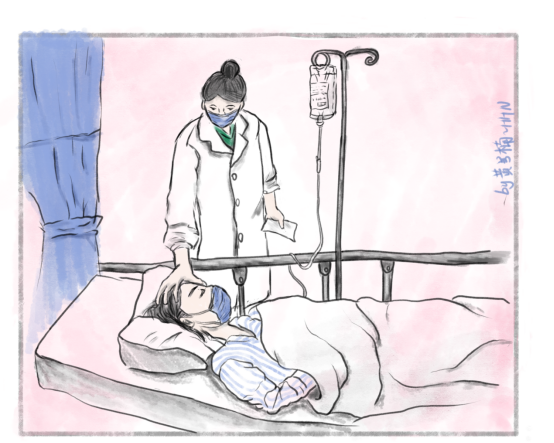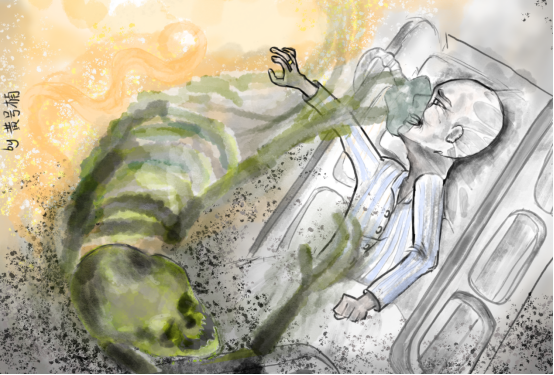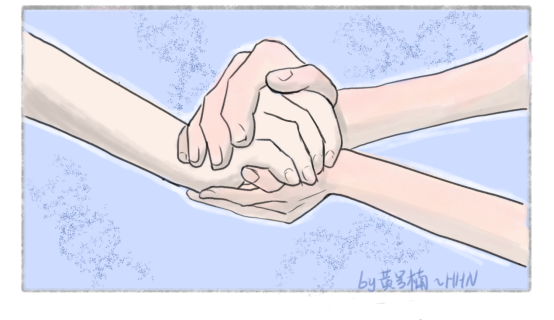The recent popular drama "Ordinary People" has sparked a wave of interest across various platforms. It tells the story of three couples who, different circumstances, face various challenges and difficulties. Through relentless efforts, they rediscover themselves and achieve their life's value, vividly depicting the living conditions and psychological of modern people under multiple pressures such as life, career, and family responsibilities.
In the story, Xie Meilan and Shen Lei disagree over the issue of treating their mother's advanced cancer. Should they spare no expense for slim chance of recovery? Will their efforts result in both financial ruin and death in the end, or will they witness a miracle? This is not only a dilemma real life, but also a choice that cancer medicine has faced in the course of its development over the years.
And when it comes to cancer treatment, which is not only about the commonly known radiotherapy and chemotherapy, is there a more realistic and humane choice cancer reaches its advanced stage and a cure is not the only goal of treatment?

1—Select the most appropriate treatment plan for each patient.
Farewell doesn't mean giving up. To save or not to save — this is not a simple choice of verbs. Behind the options the different physical conditions of each patient, the progression of the disease, and the whole family behind the patient. In the song "Ordinary People", Xieilan faces her mother's cancer. Even though she has nothing, she is willing to try every method, even if it means going against her own principles. Shen also supports most of the early treatment, but when he thinks his wife is losing her sanity and seeking alternative methods, he hesitates when facing the debt-ridden.
From the perspective of prolonging life, we certainly want every patient to have a glimmer of hope with the most advanced methods that have been effective in clinical practice. However, behind each patient is a different family, and we need to pay attention not only to humanistic care: is the quality of of the patient more important? Or is the length of life more meaningful? We also need to consider the scientific, reasonable, and economic aspects of treatment.
So what are the commonly used methods for cancer treatment?
Surgical treatment, radiotherapy, and chemotherapy are the three major basic means of tumor treatment. With the effective use of endocrine drugs and targeted drugs, chemotherapy is also advancing rapidly. In recent years, interventional therapy and biological therapy (including biological cell immunotherapy, gene therapy, and cancer stem targeted therapy, as well as palliative care, nutritional support, rehabilitation, psychological support, and traditional Chinese medicine treatment, etc.) have gradually matured, actively and effectively improving patients' prognosis and quality of life in comprehensive tumor treatment, providing different choices for different patients.
2—It's Not "Cure", But "Healing": Palliative Care
In the dilemma of "rescue" or "not rescue", hospice care can help patients with malignant tumors overcome the negative and decad living predicament with their own strength, dare to bear the pain of life, and achieve the reconstruction of life value. What we need to clarify is that complex expensive treatments are not mandatory, but optional.
Sometimes, at the end of life, in medical interventions, people often focus on improving the patient's condition or restoring function, and are often obsessed with "making holes, inserting tubes, machines, drugs, and other eighteen kinds of techniques" to retain the patient's life as as possible. However, in this case where the patient is unconscious, have we respected his will, his life?

At this point, palliative care, in the face of incurable conditions, "cure" may also be a good. Here, "cure" does not refer to the intact physiological health, but to the patient's happiness and tranquility in the final stage of life.iative care can be the alleviation of the patient's symptoms and pain, experienced care assistance, helping patients and their families out of sorrow, and focusing on the's values to fulfill their last wishes. Palliative care originated in the UK in the mid-20th century. It refers to the provision of physical psychological, and spiritual care and humanistic concern for patients in the terminal stage of disease, controlling pain and discomfort, improving the quality of life, and helping patients die comfortably and with dignity. The development of hospice care in our country is also gradually becoming regular. The "Healthy China 2030" plan by the Central Committee of the Communist Party of China and the State Council proposes to improve the medical and health service system, including the strengthening of continuous medical institutions such rehabilitation, geriatrics, and palliative care, providing policy guidance for the development of palliative care in our country. The standards for the quality of palliative are also gradually being formed. The development of palliative care towards standardization, normalization, and professionalization is becoming a service that all terminally ill patients can, thereby enabling patients to spend their final days safely, comfortably, and with dignity.

Ms. Cicely Saunders once said, "You matter because you are you, and you matter until the last moment of your life." Everyone comes this world crying, but we hope that in the end, everyone can leave with a smile. Filling the last journey of life with flowers is also a kind happiness.
References
[1] Yan Yidan, Liu Li, Zhao Lingyi, et al. A single-center retrospective study: efficacy safety of PD-1 inhibitors in the treatment of advanced cancer patients in the real world [J]. Tumor, 2023, 433): 161-170. DOI: 10.3781/j.issn.1000-741.2023.2209-0668.
[2] Lin Keyu, Zhang Hongjiang, Ge Liwei.ical dilemmas in palliative care for cancer patients and their solutions [J]. Chinese Medical Ethics, 2024, 37(7):764-769. DOI: 10.12026/j.issn.1001-85652024.07.03.
[3] Wang Xiaobo, Wei Tao, Wu Feixiang. Advances in the treatment of unreable hepatocellular carcinoma with vascular interventional therapy combined with systemic therapy [J]. Chinese Journal of Hepatobiliary Surgery, 2024,30(2): 147-151. DOI: 10.3760/cma.j.cn11388-20230805-00023.
[4] Shi Min, Cai Yuqin, Xu Zengjin The effect of hospice care on symptoms and quality of life in patients with advanced cancer [J]. Practical Cancer Journal, 2024, 396): 1042-1044. DOI: 10.3969/j.issn.10015930.2024.06.043.
[5] An Qiuling. The current situation and prospects of hospice care China [J]. People's Tribune, 2024(13): 42-45. DOI: 10.399/j.issn.1004-3381.2024.13.010
Source: Humanities Group of the Oncology Committee of the Chengdu High-tech Medical AssociationText: Liu Run (Class of 2021 Excellent Teacher Program, CMU), Liu Chaomin and Duan Ran (First Affiliated Hospital of CMU)Comic Design: Huang Haonan (Class 2021, Excellent Teacher Program, CMU)Note: All illustrations in the text are original designs by "Chengcheng Science Popularization Classroom








